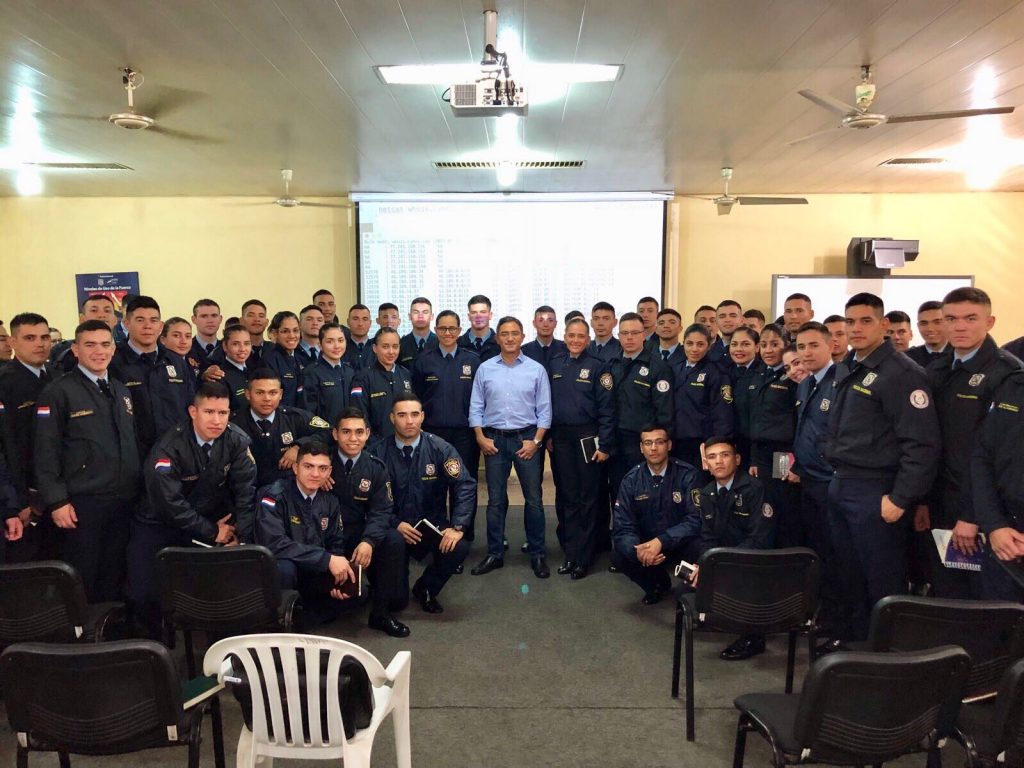
During the third week of August, I visited São Paulo, Brazil, and Asunción, Paraguay, with the goal of engaging with the community and local law enforcement organizations. We were looking to increase awareness regarding domain name system (DNS) abuse, providing training to police cyber units, explaining what ICANN is, and inviting them to join the ICANN policy development process on the matters that are relevant to them (from a security, stability and resiliency perspective, given my team’s focus areas). We do these activities all year round and in all the regions of the world.
The engagement exercises during that week were particularly positive. We provided training to different authorities, made recommendations to the private sector on security improvements regarding the operation of their domains, and explained how to mitigate threats via domain name resolution. All my presentations were very well received and attendees expressed a high level of interest.
One group in particular deserves a special mention: the 129 last-year cadets from the National Police Academy of Paraguay that attended one of our sessions in Asunción. These young and vibrant cadets ranged in age from 21 to 23 years of age. While some knew more than others about cyber-investigations, others were completely new to these topics.
At first, the cadets seated in the front rows were the most engaged of the group, paying attention and asking great questions. While some of those seated in the back didn’t seem particularly engaged at the beginning, their interest grew as the discussions progressed. They quickly started to realize how interesting these topics actually are, how they will impact the work they do, and how their own personal lives can also be affected by different forms of DNS abuse.
It was amazing to see them realize how important the DNS is, for both good and evil, and how they can use it, in ways they never suspected, to protect users and infrastructure from malicious actors.
It’s not that often that we get to interact with the next generation of cybercrime fighters. And when we do, it’s rare that they demonstrate this level of commitment, interest, and desire to start investigating. My hat is off to them.
When I returned home I realized that we, the older generations, are responsible for guiding the new generation of cybercrime fighters with our example and help them achieve their best. We can guide them in distinguishing between right and wrong and teach them to opt for what is right. We need to share what we have learned throughout the years. We need them to be better than we are.
Carlos Álvarez
blogladooscuro @ gmail.com
@isitreallysafe





Comentarios